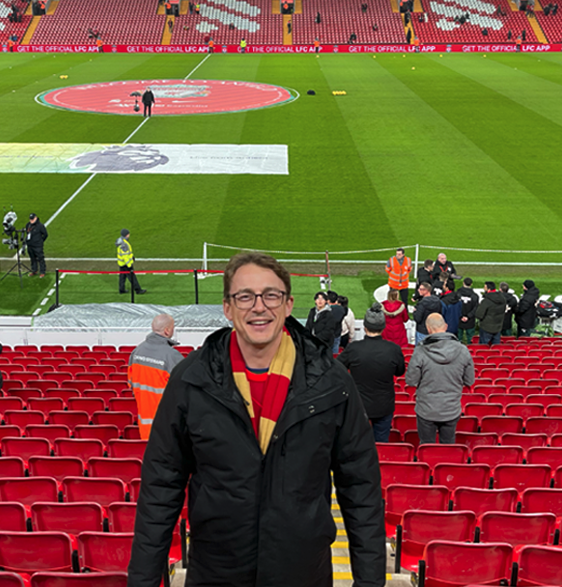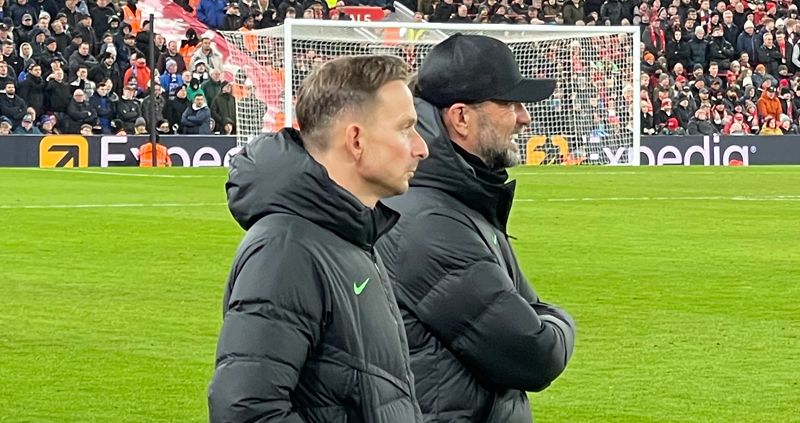Six ways business leaders can be inspired by Jurgen Klopp’s management of Liverpool Football Club
The football world was recently in shock when Jurgen Klopp announced his intention to step down as manager of Liverpool Football Club. The news comes after a nine-year reign during which he turned fans from “doubters into believers” reinvigorating a failing Liverpool team to become champions of England’s Premier League for the first time in 30 years as well as winners of Europe’s biggest competition, the Champions League.
Sport can provide us with a healthy distraction from the stresses of work, but our sporting passions can also give us points of reference to make sense of the challenges we face as leaders. Sometimes, sport can even provide the inspiration to find the solutions we need in our day job.

A life-long Liverpool fan, and an avid student of Klopp’s management style, here are six Kloppism’s that have inspired my leadership outlook.
Use your full bench.
In work, as in football, teams often become reliant on a few key players or in football terms, a first eleven. Klopp has demonstrated his faith in his full squad ensuring that even fringe players feel important and make vital contributions. This season Klopp’s use of in game substitutions has been rewarded with 30 goal contributions across all competitions which is at least 12 more than any other club in the English Premier League.
Find people who want to “Push the train”.
It is perfectly fine if you as an employee want to jump aboard a successful venture rather than really graft to get one going. But Klopp has built his success on finding and nurturing talent that would rather “push the train” than jump on a moving one. Klopp has also spoken about seeking out individuals who have had to really fight for success rather than had it handed to them on a plate, once describing this as the difference between people who have had to take the stairs rather than the elevator.
Training, not signings.
Far too often leaders jump to the conclusion that the solution to their problems lie with people outside their business and team. Whether it is new hires or management consultants, it is often easier to highlight what’s missing versus making the most of what you have got in your team. Klopp has shied away from signing star players, focusing instead on the coaching and training needed to turn youth players into stars. Klopp understands that not only is this more financially sustainable, but it also creates a very powerful culture if people think they will be given the support and opportunities to take the next steps in their careers.
Be “the normal one”.
Great leaders are exceptional, but Klopp tirelessly communicates around the importance of every member of the team behind the football club down to the staff in the canteen feeding the players every day. On his first day as manager he was found drinking with fans, and when he introduced himself, he said “I am the normal one” – a quip in reference to another competing manager who referred to himself once as “the special one.” Klopp united a dysfunctional team with a clear purpose and by being humble about himself, and downplaying his own role, he was able to ensure everyone felt important and empowered.
Not jumping ship at the first sign of trouble.
Such is Klopp’s track record and aura that he became almost un-sackable. He earned this status through his ability to adapt and respond to challenges rather than throw in the towel. During his nine years with Liverpool he had two incredibly draining seasons where performances dropped off a cliff due a team ravaged by injuries (2020/2) and ageing squad on running out of steam (2022/23). However, on both occasions he didn’t quit and instead worked with his management team and the owners to fix the problems and get performances back on track mid-season and then setting up a swift ramp up in performances the following season.
Leave things better than you find them.
Often when leaders leave roles, they leave repair jobs. But Klopp has announced his upcoming departure with a young team on the up, on the cusp of winning multiple competitions, and the foundations in place for another decade of success. When he first joined Liverpool he talked about leaving the club in a better place than he found it, and he has been true to his word. Wouldn’t it be great if all leaders made this a guiding principle of their appointments.

Getting some inspiration from Klopp at Anfield











